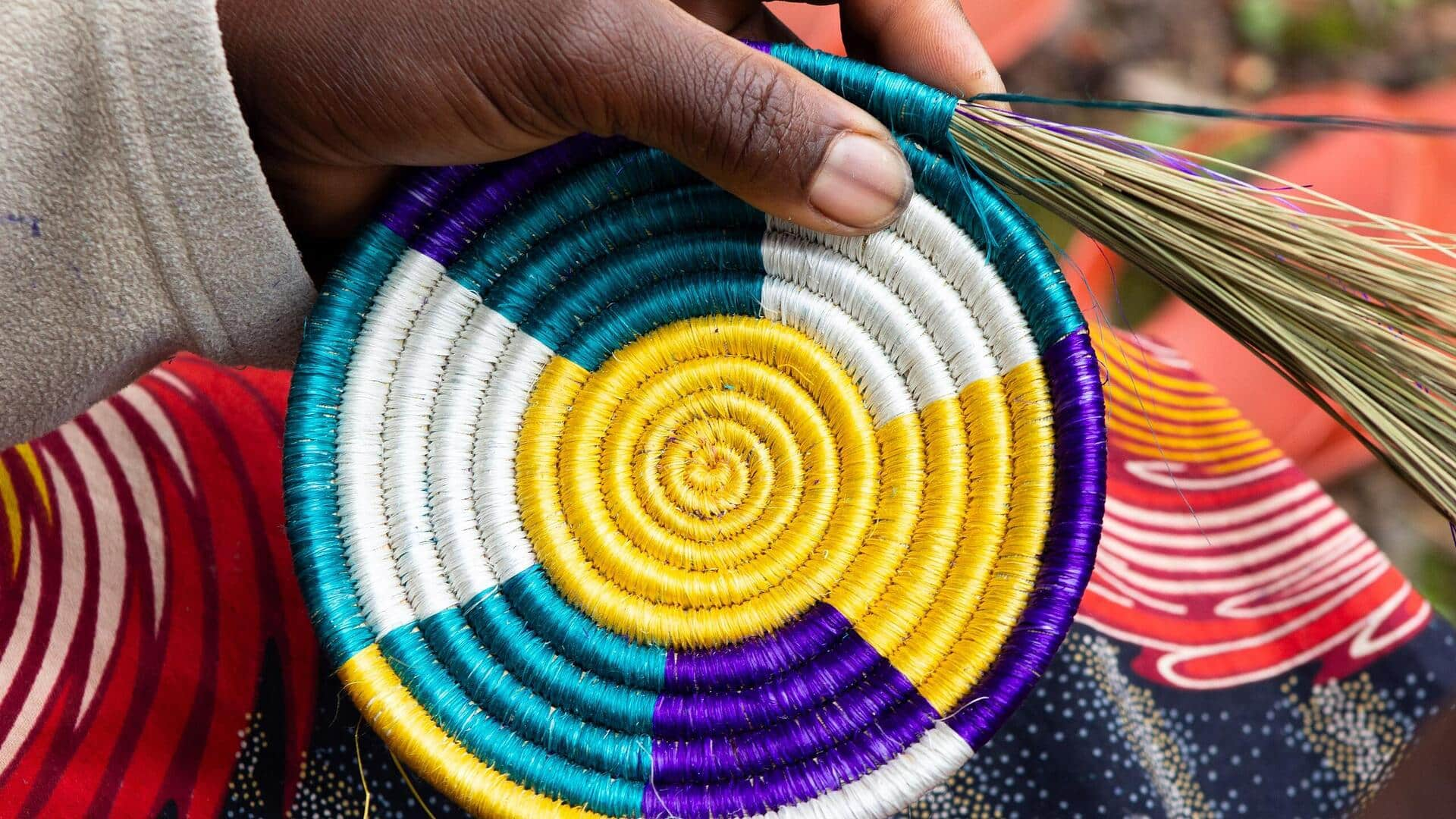
Basket weaving: 5 timeless patterns to try
What's the story
African basket weaving is an ancient craft passed down generations. It highlights the continent's rich culture. These baskets are not just functional but also gorgeous pieces of art. The patterns and techniques of African basket weaving differ from region to region. Each has its own unique significance. Here are five timeless patterns you can try. Each gives a peek into African basketry's diverse artistry.
Coil method
The coil technique
The coil technique is one of the most common methods employed in African basket weaving. This method consists of wrapping materials like grass, palm leaves, around a core material, like straw, reed. The coils are then stitched together to form the basket's structure. The technique allows for flexibility in design and size, making it popular for creating both small decorative pieces and large storage baskets.
Twining style
Twining pattern
Another popular African basket pattern is twining. It involves twisting two or more strands around vertical warp elements, resulting in a sturdy weave. The technique often produces intricate geometric designs, some of which can be colorful and textured. Twining is especially preferred for its durability, making it perfect for baskets designed for everyday use.
Plaiting method
Plaiting technique
Plaiting has to do with interlacing flat strips of material over and under each other at right angles to create a checkerboard effect. The technique is commonly employed with materials like raffia or palm leaves because of its flexibility and strength. Plaited baskets are often lightweight yet strong, ideal for carrying goods or serving as decorative items.
Wicker weave
Wicker weave pattern
The wicker weave pattern uses thin branches or reeds woven tightly together, without any additional binding materials. This open-weave style creates airy structures, perfect for ventilation, while being strong and stable. Wicker weave baskets are often used for storing fruits or vegetables, thanks to their breathable nature.
Double-walled design
Double-walled construction
Double-walled construction in basket weaving means two layers are created using different techniques, joined seamlessly at the rim. This method stitches the layers tightly along their circumference, giving the illusion of being one piece. It provides extra insulation, perfect for carrying hot items in cold weather. Made from natural fibers like sisal, hemp, and jute, these baskets have excellent thermal properties without artificial additives.